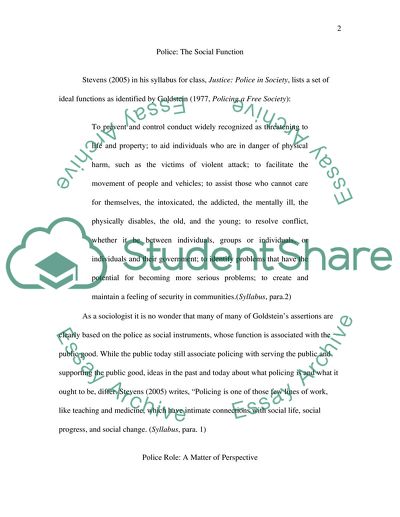Cite this document
(Policing - Role, Function, and Public Expectation Essay, n.d.)
Policing - Role, Function, and Public Expectation Essay. Retrieved from https://studentshare.org/sociology/1732277-critically-examine-the-role-and-function-of-policing-with-direct-reference-to-research-findings-on-what-police-actally-do-and-what-the-public-would-like-them-to-do
Policing - Role, Function, and Public Expectation Essay. Retrieved from https://studentshare.org/sociology/1732277-critically-examine-the-role-and-function-of-policing-with-direct-reference-to-research-findings-on-what-police-actally-do-and-what-the-public-would-like-them-to-do
(Policing - Role, Function, and Public Expectation Essay)
Policing - Role, Function, and Public Expectation Essay. https://studentshare.org/sociology/1732277-critically-examine-the-role-and-function-of-policing-with-direct-reference-to-research-findings-on-what-police-actally-do-and-what-the-public-would-like-them-to-do.
Policing - Role, Function, and Public Expectation Essay. https://studentshare.org/sociology/1732277-critically-examine-the-role-and-function-of-policing-with-direct-reference-to-research-findings-on-what-police-actally-do-and-what-the-public-would-like-them-to-do.
“Policing - Role, Function, and Public Expectation Essay”, n.d. https://studentshare.org/sociology/1732277-critically-examine-the-role-and-function-of-policing-with-direct-reference-to-research-findings-on-what-police-actally-do-and-what-the-public-would-like-them-to-do.


